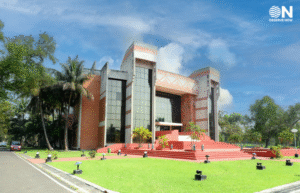India Projects Strong GDP Growth Despite Global Challenges: Economic Survey 2023-24
India’s Economic Survey 2023-24, presented by Finance Minister Nirmala Sitharaman in Parliament, forecasts a growth of 6.5–7 per cent in real GDP for 2024-25. The survey highlights India’s resilient recovery from the pandemic, with FY24’s real GDP exceeding pre-COVID FY20 levels by 20 per cent. Despite global economic uncertainties, domestic growth drivers sustained economic expansion in FY24.
The survey cautions that geopolitical tensions in 2024 could disrupt supply chains, spike commodity prices, and reignite inflationary pressures, potentially affecting capital flows and monetary policy decisions by the RBI. It notes a positive global trade outlook for 2024, expecting a rebound in merchandise trade following a contraction in 2023.
Key sectors driving growth included agriculture, industry, and services, contributing 17.7 per cent, 27.6 per cent, and 54.7 per cent respectively to Gross Value Added (GVA) in FY24. Manufacturing and construction sectors showed robust growth, benefiting from stable domestic demand and infrastructure development.
The survey emphasizes the role of Gross Fixed Capital Formation (GFCF) in driving economic momentum, reporting significant increases in private sector investments across various segments. It underscores improvements in fiscal consolidation, with the Union Government reducing the fiscal deficit to 5.6 per cent of GDP in FY24.
On the external front, India managed its trade balance well, with service exports hitting USD 341.1 billion in FY24, offsetting subdued merchandise exports due to global demand weakness. Remittances remained strong, helping reduce the Current Account Deficit to 0.7 per cent of GDP.
The survey also highlights ongoing reforms aimed at enhancing social welfare and empowering marginalized communities through outcome-based initiatives like PM Ujjwala Yojana and Jan Dhan Yojana. It underscores improvements in labor market indicators, including rising female labor force participation rates.
Overall, the Economic Survey paints a cautiously optimistic picture of India’s economic prospects amidst global uncertainties, emphasizing the need for continued reforms and resilience in the face of potential challenges ahead.

























